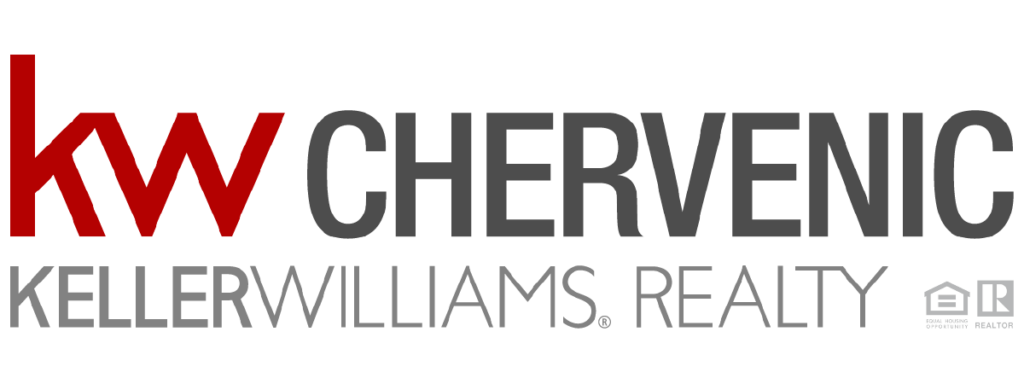Welcome to our comprehensive real estate glossary! Whether you’re a seasoned investor, a first-time homebuyer, or simply curious about the terminology used in the real estate industry, you’ve come to the right place. This glossary is designed to provide clear definitions and explanations for a wide range of terms commonly encountered in real estate transactions.
Navigating the world of real estate can be overwhelming, especially when faced with a barrage of unfamiliar terms and concepts. Our goal is to demystify the language of real estate, empowering you to make informed decisions and navigate transactions with confidence.
From understanding the intricacies of mortgage financing to deciphering the nuances of property inspections, our glossary covers it all. Whether you’re looking to brush up on your real estate knowledge or seeking clarification on specific terms, you’ll find everything you need right here.
Feel free to explore our glossary at your own pace, and don’t hesitate to reach out if you have any questions or suggestions for additional terms to include. We’re here to support you on your real estate journey, every step of the way. Happy exploring!
A
- Amortization: The process of gradually paying off a loan, such as a mortgage, through regular installment payments that include both principal and interest.
- Appraisal: An assessment of the value of a property, conducted by a licensed appraiser, to determine its market worth.
- Appraisal Fee: A fee charged by a licensed appraiser to assess the value of a property, typically paid by the buyer or borrower.
- Attorney Fees: Charges for legal services provided by an attorney or closing agent involved in the real estate transaction, including reviewing contracts and conducting the closing process.
- As-Is Condition: A clause in the purchase agreement stating that the property is being sold in its current condition, with no obligation for the seller to make repairs or concessions.
C
- Capitalization Rate (Cap Rate): A measure used to estimate the potential return on investment for a real estate property, calculated by dividing the property’s net operating income by its current market value.
- Cash Flow: The net income generated by a real estate investment property after deducting expenses such as mortgage payments, property taxes, and maintenance costs.
- Closing Costs: Various fees and expenses incurred by buyers and sellers during the closing of a real estate transaction.
- Closing Costs Credit: An agreement between the buyer and seller where the seller agrees to credit the buyer a certain amount towards their closing costs as part of the purchase agreement.
- Closing Date: The date specified in the purchase agreement when the transfer of ownership will occur, typically following the completion of all necessary inspections, financing arrangements, and paperwork.
- Closing Disclosure (CD): A document provided to borrowers by the lender at least three days before closing, outlining the final terms and costs of the mortgage loan.
- Comparative Market Analysis (CMA): An analysis of recently sold properties in the area to determine a property’s fair market value, often used by sellers to set an appropriate listing price.
- Contingencies: Conditions that must be met for the sale of the property to proceed, such as satisfactory home inspections, appraisal, or securing financing.
- Contingency: A condition or requirement outlined in the purchase agreement that must be met for the sale to proceed, such as a satisfactory home inspection or obtaining financing.
- Contingency Removal: The process by which contingencies outlined in the purchase agreement are satisfied or waived by the parties involved, allowing the transaction to proceed to closing.
- Counteroffer: A response to an initial offer from one party that proposes different terms or conditions, initiating further negotiation between the buyer and seller.
D
- Deed: A legal document that transfers ownership of a property from one party to another.
- Down Payment: The initial payment made by a buyer toward the purchase price of a property, typically expressed as a percentage of the total purchase price.
- Due Diligence: The process of conducting thorough research and investigation into all aspects of the property and transaction to ensure informed decision-making by the buyer.
E
- Earnest Money Deposit: A deposit made by the buyer to demonstrate their serious intent to purchase the property, typically held in escrow until closing.
- Escrow: The holding of funds, documents, or assets by a neutral third party until all conditions of a real estate transaction are met.
- Escrow Fees: Costs associated with the escrow process, including the handling of funds and documents by a neutral third party.
- Escrow Instructions: Written instructions provided to the escrow agent, outlining the responsibilities and conditions for the handling of funds and documents related to the real estate transaction.
- Equity: The difference between the market value of a property and the amount still owed on the mortgage loan. Equity represents the owner’s ownership interest in the property.
F
- Final Walkthrough: A final inspection of the property conducted by the buyer shortly before closing to ensure that any agreed-upon repairs have been completed and the property is in the expected condition.
- Foreclosure: The legal process by which a lender repossesses a property due to the homeowner’s failure to make mortgage payments.
H
- Home Inspection: An examination of a property’s condition, typically conducted by a licensed inspector, to identify any potential issues or defects.
- Home Warranty: Optional coverage that provides protection against the cost of repairing or replacing major home systems and appliances.
- Home Warranty Contingency: A provision in the purchase agreement that allows the buyer to request a home warranty policy to protect against the cost of repairing or replacing major home systems and appliances.
I
- Interest Rate: The percentage charged by a lender for borrowing money, typically expressed as an annual percentage rate (APR), applied to the principal loan amount.
- Underwriting: The process by which a lender evaluates a borrower’s financial situation and the risk associated with extending a mortgage loan.
- Underwriting Fee: A fee charged by the lender for evaluating the borrower’s creditworthiness and determining the risk associated with extending a mortgage loan.
L
- Leverage: The use of borrowed funds, such as a mortgage loan, to increase the potential return on investment in real estate by magnifying gains relative to the investor’s own capital.
- Listing Agreement: A contract between a property owner and a real estate agent, authorizing the agent to represent and market the property for sale or lease.
- Loan Processing Fees: Charges for processing and underwriting a mortgage loan application.
- Loan-to-Value (LTV) Ratio: The ratio of the mortgage loan amount to the appraised value or purchase price of the property, expressed as a percentage.
- Liquidated Damages: A predetermined amount of money specified in the purchase agreement that the buyer or seller may be required to pay if they fail to fulfill their obligations under the contract.
M
- Mortgage: A loan secured by real estate, typically used to purchase a home, with the property serving as collateral for the loan.
- Multiple Listing Service (MLS): A database used by real estate agents to share information about properties for sale, allowing for cooperation and compensation between agents.
N
- Net Operating Income (NOI): The total income generated by a property from rental income and other sources, minus operating expenses such as property taxes, insurance, and maintenance costs.
- Notary Fees: Charges for notarizing legal documents, such as the deed and mortgage instruments.
O
- Offer: A proposal to purchase or lease a property, including the terms and conditions outlined by the buyer or tenant.
- Origination Fees: Charges imposed by the lender for processing a mortgage loan application.
P
- Pre-approval: The process by which a lender evaluates a borrower’s creditworthiness and determines the maximum loan amount they are qualified to receive.
- Prepaid Expenses: Costs paid in advance at closing, such as property taxes, homeowners insurance, and prepaid interest.
- Principal: The original amount of money borrowed in a loan, excluding interest and other charges.
- Purchase Agreement (or Purchase Contract): A legally binding contract between a buyer and seller that outlines the terms and conditions of the real estate transaction, including the purchase price, financing terms, and closing date.
R
- Radon Test: A test conducted to measure the presence of radon gas in a property, which can pose health risks if present at high levels.
- Real Estate Agent: A licensed professional who represents buyers or sellers in real estate transactions, assisting with negotiations and paperwork.
- Refinance: The process of obtaining a new mortgage loan to replace an existing loan, often to take advantage of lower interest rates or access equity in the property.
- Recording Fees: Charges for recording the deed and other legal documents with the appropriate government authorities.
S
- Seller Concessions: Negotiated contributions or incentives offered by the seller to the buyer as part of the purchase agreement, such as paying a portion of closing costs or making repairs to the property.
- Settlement Statement: A document provided to buyers and sellers at closing, detailing all financial transactions and expenses associated with the real estate transaction.
- Survey Fees: Costs associated with conducting a survey to verify property boundaries and identify encroachments or easements.
T
- Tax Deductions: Expenses related to owning, operating, or financing a real estate investment property that can be deducted from taxable income, reducing the property owner’s tax liability.
- Title Contingency: A condition in the purchase agreement that requires the seller to provide clear and marketable title to the property before the sale can be finalized.
- Title Insurance: Insurance that protects homeowners and lenders against financial loss due to defects in the title of a property.
- Title Search: The process of examining public records to verify the legal ownership of a property and identify any existing liens or encumbrances.
- Transfer Taxes: Taxes imposed by local or state governments on the transfer of property ownership.
U
- Underwater Mortgage: A situation in which the outstanding balance of a mortgage loan exceeds the current market value of the property, leaving the homeowner with negative equity.
- Walk-Away Rights: The rights of the buyer to walk away from the purchase agreement without penalty if certain conditions, such as financing or inspection issues, are not met.
- Wire Transfer Fee: Charges for electronically transferring funds between banks or financial institutions, often used for large payments such as the purchase price of a property.
Y
- Yield: The rate of return on an investment property, calculated as the annual income generated by the property divided by its purchase price or market value, expressed as a percentage.
Z
- Zoning: Government regulations that dictate how land can be used and developed within a specific area, such as residential, commercial, or industrial zoning.
- Zoning Variance: Permission granted by local authorities to deviate from existing zoning regulations, allowing for alternative land use or development plans.
The information provided here is intended for informational purposes only and should not be interpreted as financial, tax, legal, or insurance advice. Alan Nicole Premier Properties strongly advises you to consult with an advisor regarding your specific situation.

